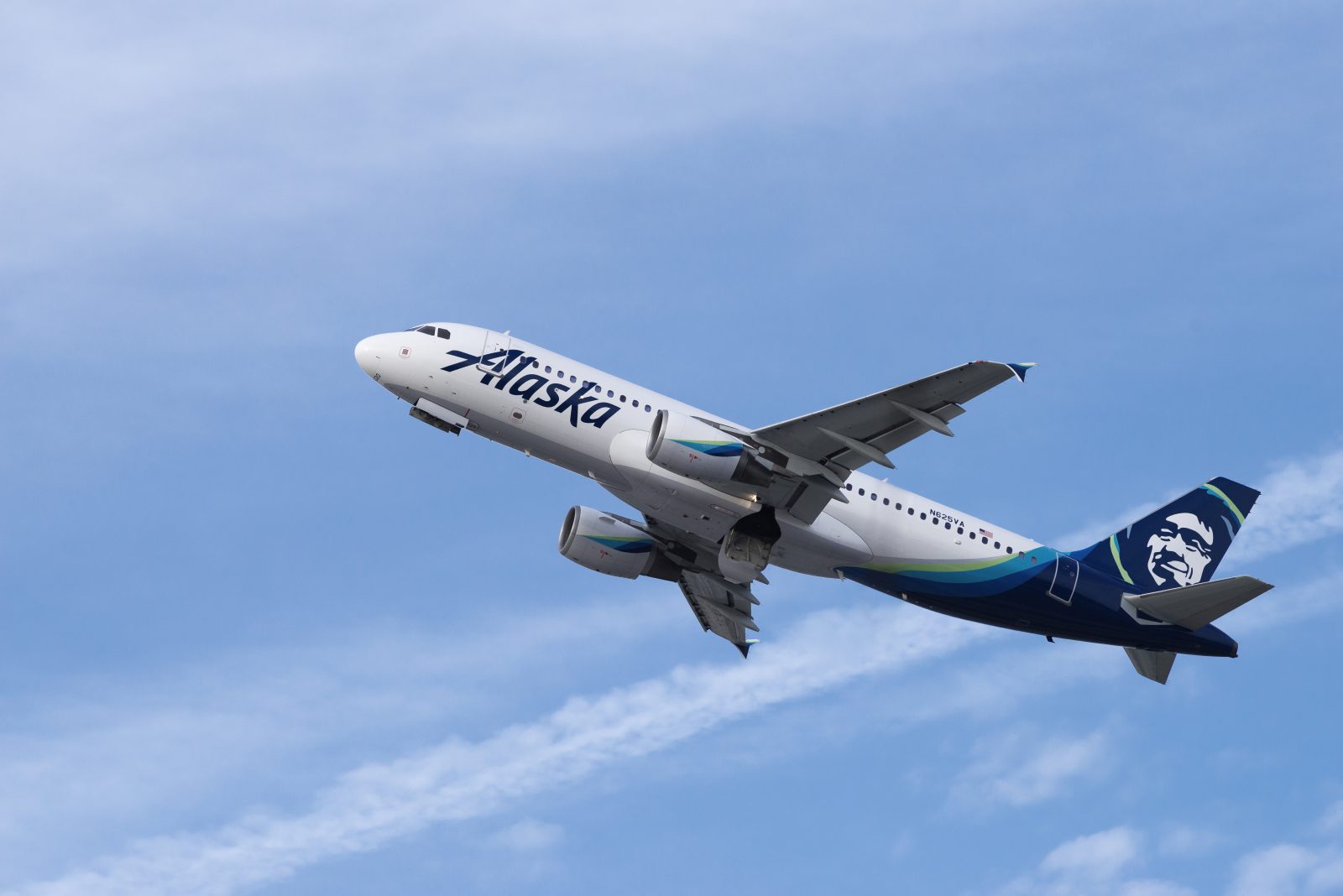
Alaska Airlines has confirmed that two of its flight attendants were sent to the hospital after they started to feel unwell when they breathed in a ‘strong chemical smell’ on a flight from Seattle to San Jose on Friday.
The two flight attendants were in the rear galley of the aircraft and none of the other crew or passengers was affected, a spokesperson for the airline said. There were 44 passengers onboard, along with three other flight attendants and two pilots.
Alaska Airlines flight AS338 was approaching San Jose at around 10 am on Friday when the flight attendants at the back of the aircraft started to feel unwell. An ambulance responded to the incident and after being evaluated on the plane, the pair were transported to a local hospital for further checks.
The Association of Flight Attendants (AFA-CWA) which represents crewmembers at Alaska Airlines recommends that flight attendants who are exposed to a ‘smoke, odor or fume’ event record their symptoms and get checked out by a medical professional as quickly as possible.
Alaska Airlines said the Airbus A320 aircraft involved in Friday’s incident had been temporarily removed from service for engineering checks. An onward flight from San Jose to Portland was cancelled on Friday but the 11-year-old aircraft is expected to return to Seattle on a revenue service later on Saturday.
So-called ‘smoke, odor or fume’ events, as they are known in the industry, are sometimes referred to as ‘toxic fume events’ because of the devastating impact that they can reportedly have on the short and long term health of those exposed to one.
Between January 2018 and December 2019, more than 400 passengers and flight attendants aboard U.S.-operated airplanes could have been sickened by “toxic fumes” according to a Los Angeles Times investigation that analysed data from a NASA run aviation safety reporting system.
Campaigners for better aircraft cabin air warn the number of sickened passengers and crew highlighted in the investigation could be just the tip of the iceberg because the dossier only included voluntary reports.
The Federal Aviation Administration (FAA) doesn’t keep a record of ‘smoke, odor or fume’ (SOF) events but in the 12-months from January to December 2019, American Airlines is said to have reported a total of 1,644 SOF events.
Anecdotally, SOF events occur more often on Airbus A320 series aircraft than the similar Boeing 737 aircraft. Some SOF events are connected to the ‘bleed air’ system that delivers fresh air to the cabin via the engines. In some rare cases, engine oil or other chemicals can become vaporised and sucked into the cabin via the bleed air inlet.
Airbus insists, that while unpleasant, odor events are not dangerous and cannot cause long-term health problems.
Mateusz Maszczynski honed his skills as an international flight attendant at the most prominent airline in the Middle East and has been flying ever since... most recently for a well known European airline. Matt is passionate about the aviation industry and has become an expert in passenger experience and human-centric stories. Always keeping an ear close to the ground, Matt's industry insights, analysis and news coverage is frequently relied upon by some of the biggest names in journalism.








Was it the smell of warm food being served in first?….that’s usually enough to strike fear in flight attendants…particularly AFA members.
It seems nobody actually knows for certain what these odor events are yet. It seems that tests are being carried on the airbus but will the results be made public or even given to the flight attendants? It is said in the article that none of the passengers were affected – have they been tested and asked?